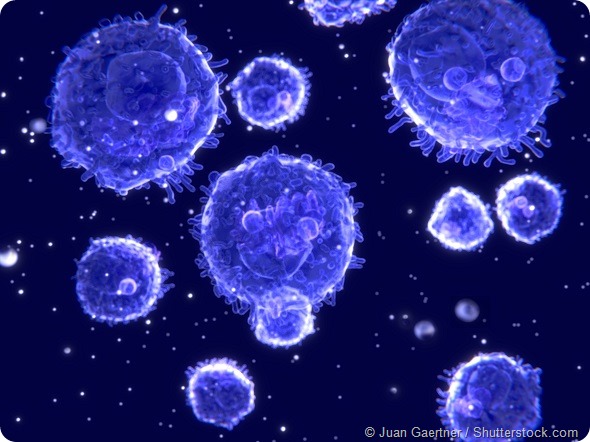Research sponsored by Cancer Research UK has identified mutations common to all tumor cells. Immunotherapies specific for these mutations could deliver chemotherapeutic agents to all tumor cells and destroy them.

During its growth, a tumor develops a range of mutations. Specific proteins resulting from these unique mutations appear on the surface of tumor cells in certain regions of the tumor. Antibodies specific for these surfaces proteins (antigens) are used to allow targeted delivery of toxic agents to destroy the tumor cells but not healthy cells.
The latest research has revealed which antigens arise from the earliest mutations and are thus displayed by all the cells of a tumor, rather than just a specific subset. Antigens from later mutations arise in only some of the tumor cells, and it is these changes that allow a tumor to become drug-resistant.
The body's immune system acts as the police trying to tackle cancer, the criminals...Our research shows that instead of aimlessly chasing crimes in different neighborhoods, we can give the police the information they need to get to the kingpin at the root of all organized crime - or the weak spot in a patient's tumor - to wipe out the problem for good."
"Based on these new findings, we will be able to tell the immune system how to specifically recognize and attack tumors."
Dr Sergio Quezada, co-author of the study, Cancer Research UK scientist and head of the Immune Regulation and Cancer Immunotherapy lab at UCL Cancer Institute.
Although T-cells that specifically recognize the antigens produced through early mutations have been isolated, the tumor cells have developed defense mechanisms that inactivate such an immune response by the host. However, there is now the potential for treatments to be developed to protect these T-cells from inactivation or to reactivate them so they can recognize and remove all cancer cells.
Professor Peter Johnson, Cancer Research UK's chief clinician, said: "This fascinating research gives us vital clues about how to specifically tailor treatment for a patient using their immune system."
These latest findings explain why some patients respond to immunotherapy treatment and others do not, and provide the basis for bespoke cancer treatment. It can now be determined which treatments are most likely to be effective in a given patient. Furthermore, not only does this research allow existing immunotherapies to be used more effectively, it also provides new targets for the development of further treatments.